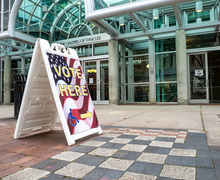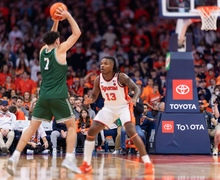Liberal : Law enforcement’s use of GPS tracking invades privacy
The Supreme Court will soon begin the process of ruling whether police are allowed to use GPS surveillance without a warrant to track suspects. Over the past several years, police have made use of the technology without acquiring warrants. This use has caused privacy advocates to ask if this technique is legal.
The Fourth Amendment specifies that people have the right to privacy. Police must have probable cause to conduct a search, and the search must have an appropriate scope. Based on these principles, warrantless GPS surveillance represents an overreach in police power. The method threatens individual privacy. Regardless of the gains police may make by tracking, proper procedure must be followed.
Federal courts have not consistently ruled that privacy is most important. In 2010, the 9th Circuit Court of Appeals ruled in favor of the Drug Enforcement Agency, which planted a tracker on a man’s car without a warrant. The man was suspected of growing marijuana. The DEA found the crop by following the tracker, which was placed on the car when it was parked on the street.
The court ruled that police may place GPS surveillance on cars not in garages without a warrant. The ruling implies that there is no expectation of privacy for cars parked on the street or in one’s driveway.
Other courts have issued rulings that disagree. A Washington, D.C., appeals court, ruled that warrantless GPS surveillance constitutes an illegal search. In this case, a suspected cocaine distributor’s car was monitored for 28 days. The scope of the search, under the Fourth Amendment, seems to be far too great.
Douglas H. Ginsburg, a judge hearing the case, wrote in his opinion: ‘A reasonable person does not expect anyone to monitor and retain a record of every time he drives his car, including his origin, route, destination, and each place he stops and how long he stays there; rather, he expects each of those movements to remain disconnected and anonymous.’
Those in favor of allowing the practice tend to dismiss privacy concerns. Their interest lies in letting police investigate in the least obstructed manner. Rather than waiting to gather enough evidence to require a warrant, simply using GPS allows for greater ease in finding evidence. These individuals falsely presume that the technology will only be used with discretion. In so arguing, they place too much trust in the police.
It is a leap to assume that an individual’s property becomes public space when left unsecured.Nobody should need to have a detector to routinely check their vehicle for trackers. When people drive, they assume they are not being monitored.
The Constitution exists, in part, to check the government from over-reaching its authority. Should tracking of an individual be needed, police should have no difficulty proving probable cause to get a warrant. Alternatively, police may decide to conventionally track an individual without technological assistance. In this case, there is the chance that a suspect may realize he or she is being followed.
If the government is allowed to track any person for any reason, even if well intended, people’s privacy is severely compromised. Great potential for abuse exists. Police must obtain warrants to prevent abuse. If the court does not rule in favor of preserving privacy, we will enter into a radically different country with completely new rules on how much power the government has.
Harmen Rockler is a junior political science and newspaper journalism major and his column appears weekly. He can be reached at horockle@syr.edu.
Published on September 18, 2011 at 12:00 pm





